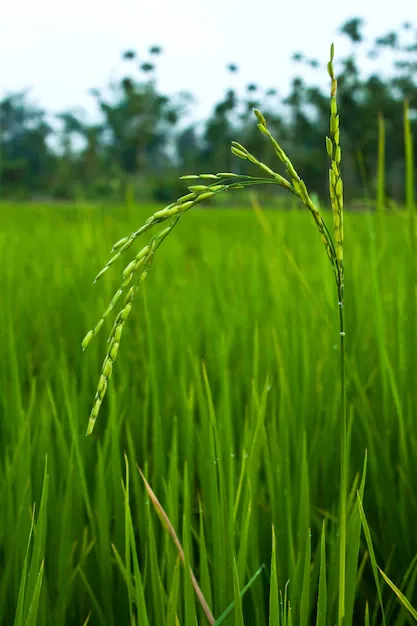I wouldn't say the ban of major food the majority of Nigerians eat on a daily basis is the only thing causing the struggles we experience today but I do think that it's contributing to it, the majority of the Nigeria homes do not smile genuinely like they used to smile when rice was sold at the rate of at least 100 naira per cup, that's because I don't want to go down to memory lane.
I heard a man say one day that everybody in Nigeria is angry. I was pushed to ask him why because at the time he said that I wasn't angry. He responded "because hunger is everywhere, an hungry man is an angry man." You might say I am not angry until you are hungry.
Food is a necessity, second to none. Food and water work hand in glove. Just the same way no one can say he can stay 24 hours without taking water is the same way it is very difficult to stay a day without eating food. One thing that causes people to starve themselves is when there is no food or the cost of purchasing the food is high.
Everybody prays for a good government. I know that the intent of the rice ban was to address specific concerns that would help in the economic development but the result of the ban has no positive effect towards that angle and has woven hundreds of hardships in the lives of Nigerians.
While Nigerians are now producers of rice, the cost of rice is now four times of what it used to be. While the cost is supposed to be less. The only food that is every Nigerian meal is now sold at the rate of 250 naira per cup.
Uplighting the ban on rice imports is not just about bringing back a food source but also a way of challenging the local production to sit up and work harder. I know for sure it is because of the high demand and low supply that is making the so-called "Nigerian rice" skyrocket. Currently, there is no color of rice you won't see at the market in the name of local rice. But it wasn't so when importation of rice was allowed.
Currently Nigerians buy rice like they don't have a choice even with the production of rice, the price of rice is very high unless you are going for what even the poorest man would look twice if given to him. I went to the market on Friday to buy rice. I saw different kinds of rice and I shook my head. The man was surprised at my reaction and asked if it was my first time buying rice.
It was actually my first time going to buy foodstuffs after many years. I ended up getting just 3 cups for N750 which I ate for just a day. That made me consider about families that have 3 and above individuals living with them, how many cups of rice they have to buy before we talk of the ingredients.
Lifting a ban on this does not mean endorsement of unchecked activities. While supporting local production of rice, balancing the scale of providing affordable food options is a way of providing a solution to this problem Nigerians are facing now.
If there is anything that should be ban, it should be materials used to produce nylon. Knowing the environmental impact of nylon, it is something that should not used but nylon is what we see everywhere and everyday around us leading to long-term pollution and environmental harm.
